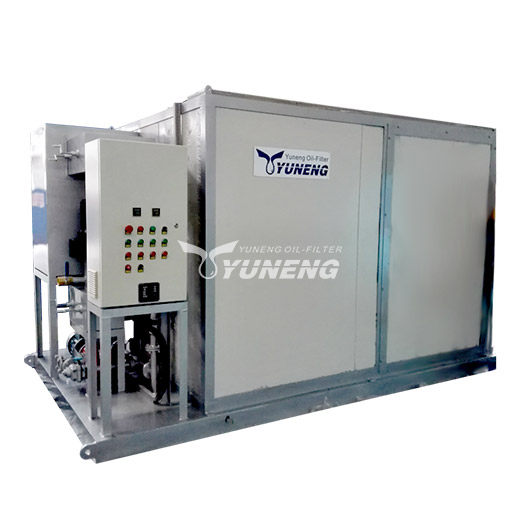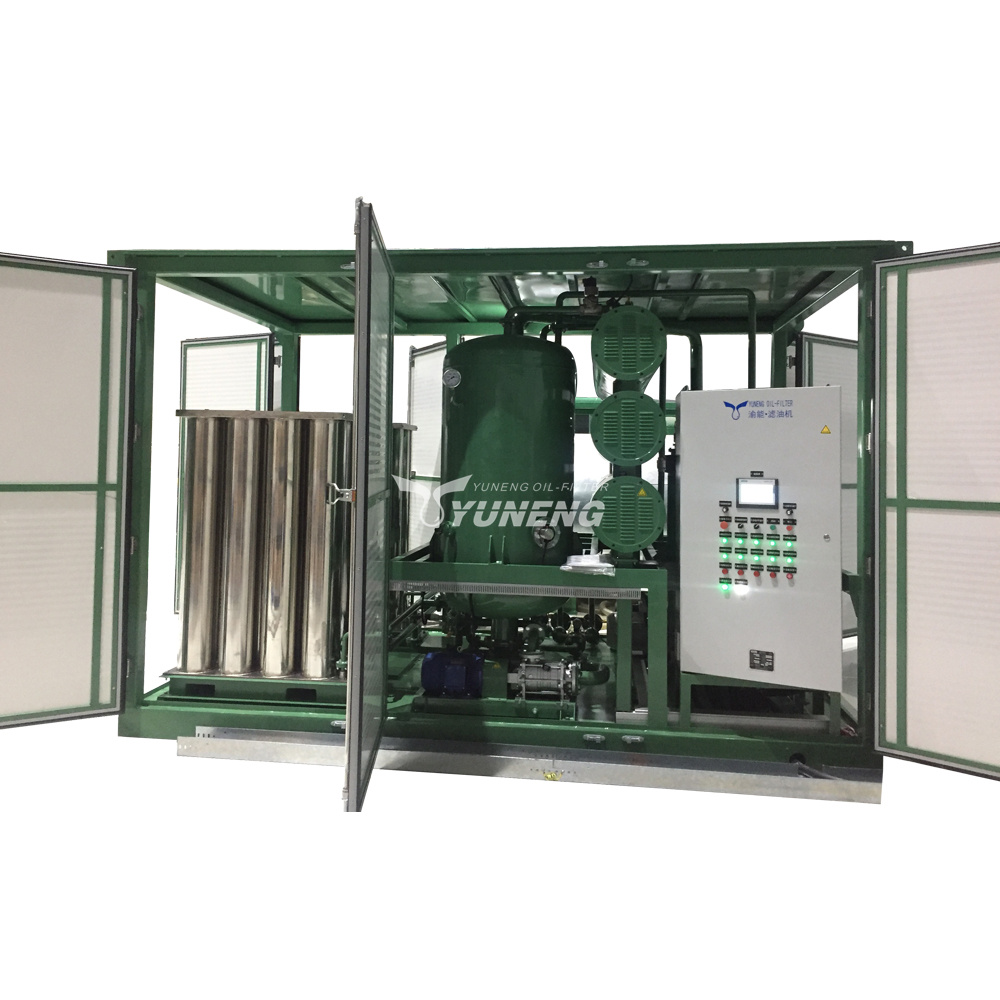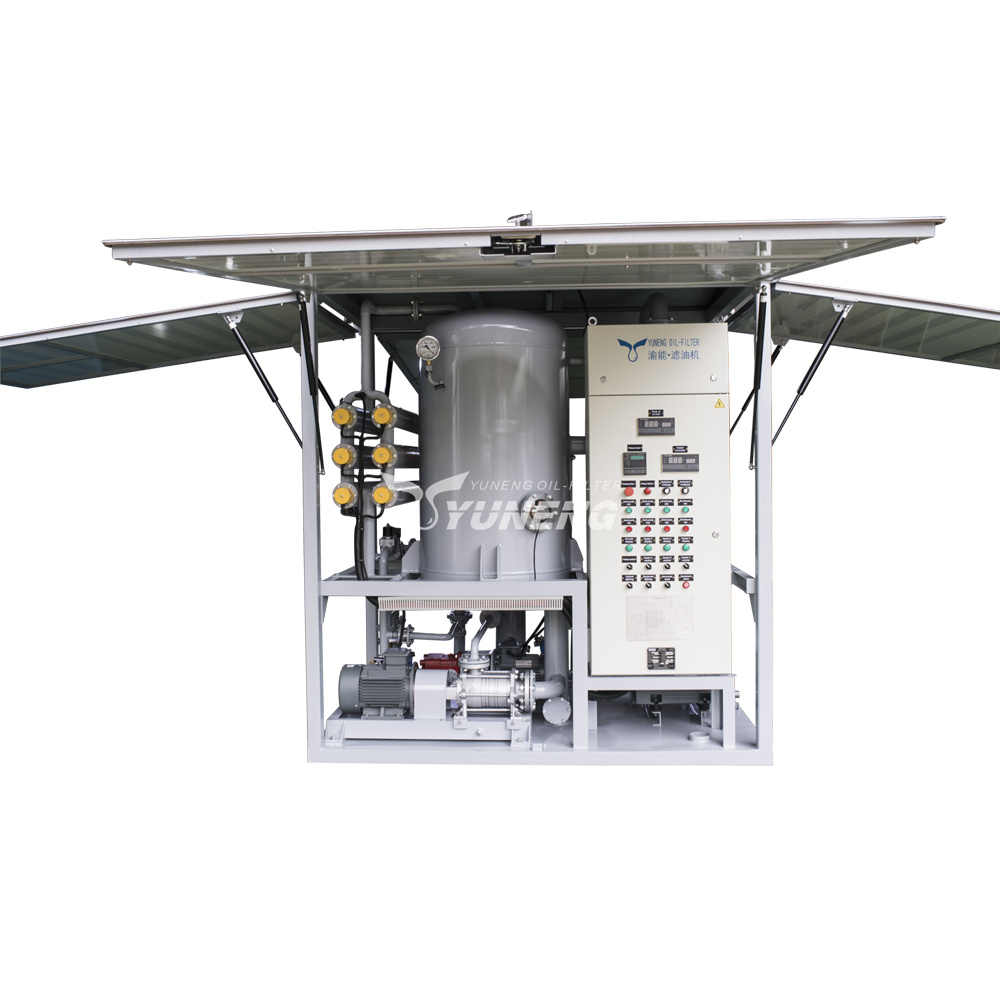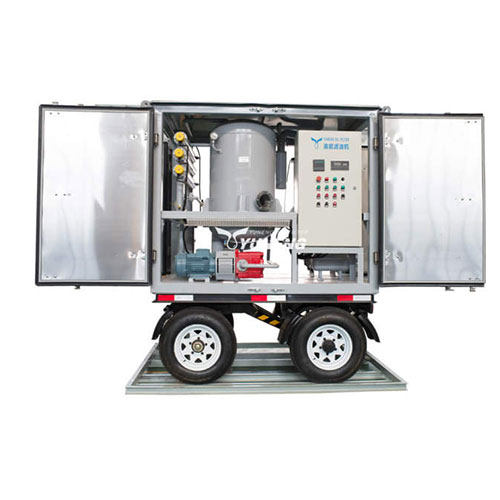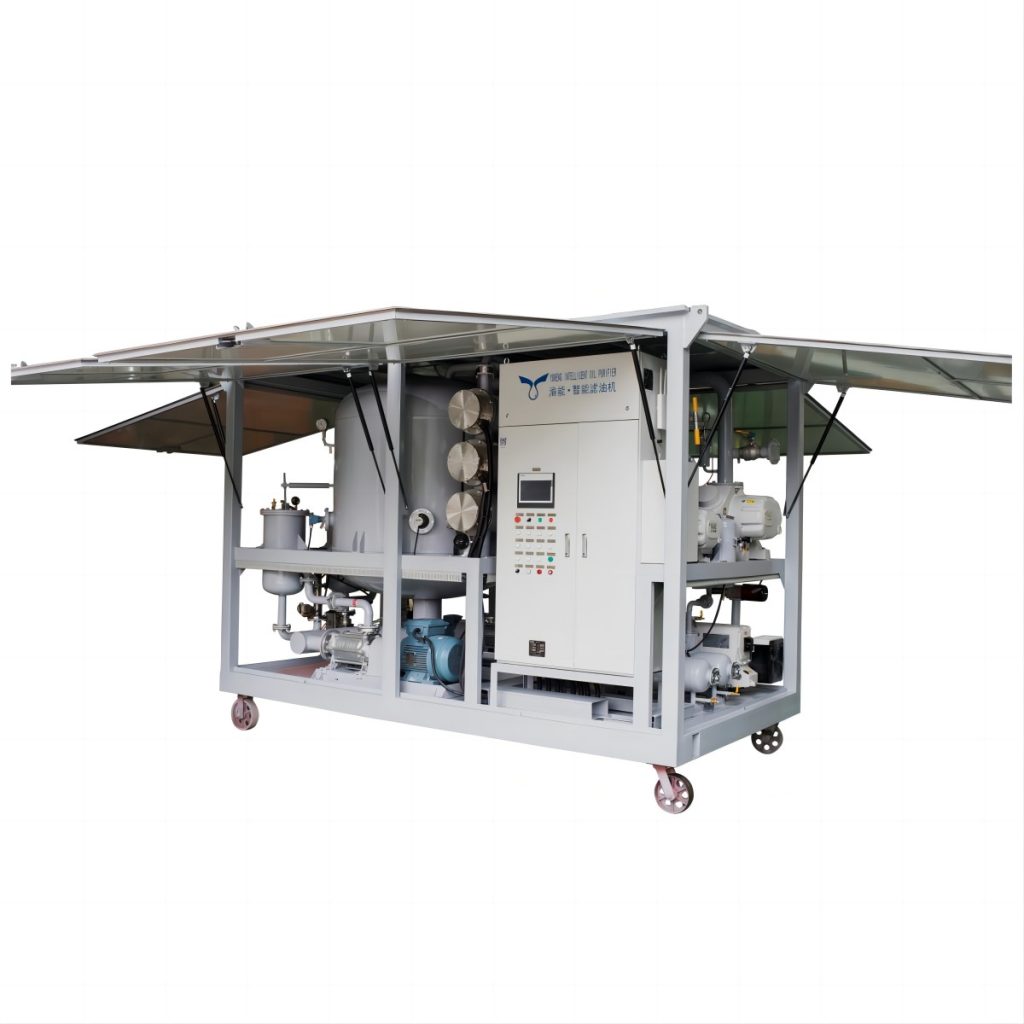The True Cost of Transformer Oil Reclamation vs. Replacement
The oil used in transformers plays a critical role in cooling and insulating the equipment. Over time, this oil can degrade, impacting transformer performance and longevity. In addressing degraded oil has two primary approaches: oil reclamation and oil replacement. This article explores the impact of degraded oil on transformer performance, the processes of oil reclamation and replacement, and a cost analysis of both methods.
Impact of Degraded Oil on Transformer Performance

The decline in transformer oil quality has various adverse effects on transformer performance, which may ultimately endanger the service life of transformers and the stability of the power grid. It mainly includes the following points:
- Diminished Dielectric Strength: A key function of transformer oil is to provide electrical insulation between high-voltage windings. As the oil degrades through processes like oxidation, it forms polar molecules and acidic compounds. These byproducts compromise the oil’s dielectric strength, its ability to resist electrical current flow. This reduced insulating capacity significantly increases the risk of electrical arcing within the transformer.
- Exacerbated Dielectric Losses: Degraded transformer oil also exhibits a rise in its own conductivity. This allows a small amount of current to leak through the oil, a phenomenon known as dielectric losses. These losses translate to wasted energy and a decline in overall transformer efficiency. This translates to higher operating costs and a strain on the power grid’s ability to deliver electricity efficiently.
- Impeded Heat Transfer: Sludge, a common byproduct of transformer oil degradation, accumulates on internal components and acts as an insulator. This hinders the oil’s ability to absorb heat generated by the transformer’s natural operation. The resulting consequences are severe:
- Accelerated Oil Degradation: The increased operating temperature due to impeded heat transfer creates a vicious cycle. The hotter environment further promotes oil oxidation, leading to a faster decline in oil quality.
- Thermal Expansion and Stress: Excessive heat causes the transformer’s internal components to expand unevenly, creating mechanical stress. This stress can damage insulation and compromise the integrity of the transformer.
- Reduced Capacity: In severe cases, overheating may necessitate derating the transformer. This means it can’t handle its full rated load, potentially leading to power shortages and grid instability.
- Moisture Issues: Degraded oil loses its ability to effectively repel moisture. This allows water to ingress into the transformer, further compromising insulation and accelerating internal corrosion. Moisture can also react with the byproducts of oil degradation to form conductive paths, significantly increasing the risk of electrical breakdowns and compromising transformer reliability.
These problems rarely occur in isolation. They often have a cascading effect, with one issue leading to another, ultimately culminating in a complete transformer failure. Early detection and treatment of degraded oil through reclamation is essential to prevent this domino effect and safeguard the health and longevity of transformers, ensuring a reliable and efficient power grid.
Transformer Oil Reclamation
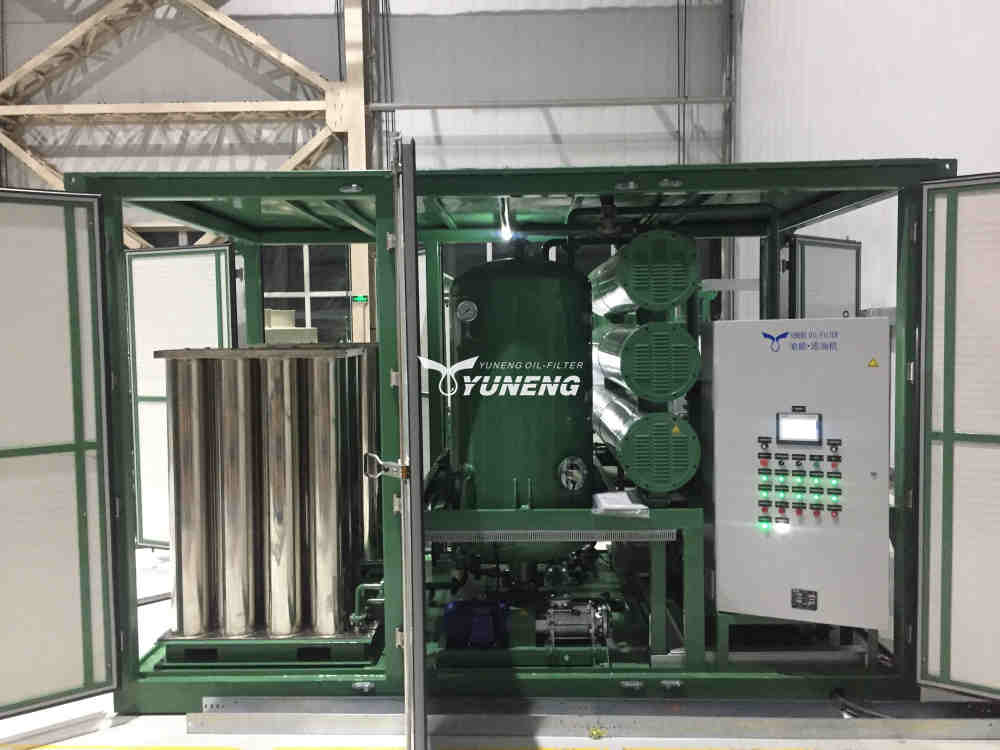
Transformer oil reclamation is a critical maintenance strategy for power systems, aimed at revitalizing used transformer oil to extend its lifespan and maintain optimal transformer performance. Over time, transformer oil degrades, which reduces its insulating and cooling properties. If left untreated, degraded oil can lead to reduced efficiency, increased risk of transformer failure, and higher operational costs.
Oil reclamation offers a cost-effective and environmentally friendly alternative to oil replacement. By restoring the chemical and physical properties of the oil, reclamation enhances its dielectric strength and thermal conductivity, ensuring the transformer continues to operate safely and efficiently. This not only helps in reducing the need for purchasing new oil but also minimizes the environmental impact associated with the disposal of large volumes of used oil.
Moreover, transformer oil reclamation can often be conducted with minimal downtime, making it a convenient option for maintaining the continuity of power supply. By regularly reclaiming transformer oil, utility companies can ensure their transformers remain reliable and durable, thus safeguarding their investment and infrastructure.
Transformer Oil Replacement
Transformer oil replacement involves draining degraded oil from a transformer and refilling it with new, high-quality oil. This process is essential for maintaining transformer performance, as new oil restores optimal dielectric strength and thermal conductivity, ensuring efficient operation and insulation.
The primary benefit of oil replacement is the immediate enhancement of transformer reliability and efficiency. However, the process comes with significant costs and logistical challenges. Purchasing large volumes of new oil can be expensive, and the replacement process requires taking the transformer offline, resulting in operational downtime and potential power supply disruptions.
Additionally, disposing of the old, degraded oil must be done carefully to comply with environmental regulations, adding complexity and cost to the procedure. Despite these challenges, transformer oil replacement is sometimes necessary when oil degradation is severe and beyond the restorative capabilities of reclamation.
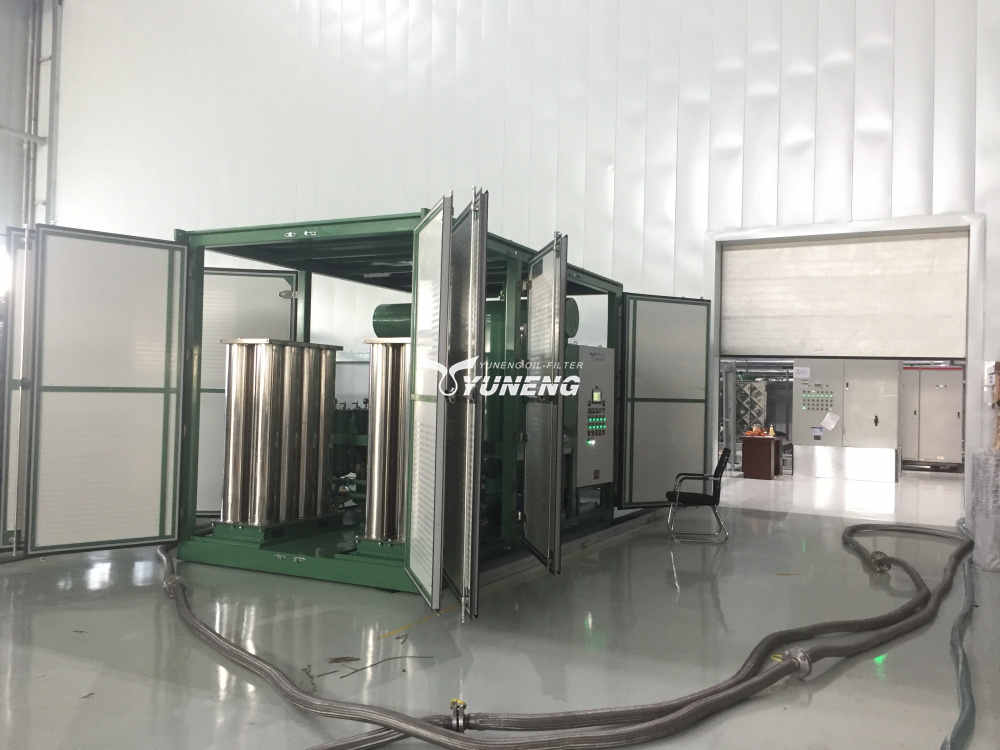
Cost Analysis: Reclamation vs. Replacement
When assessing the financial implications of transformer oil reclamation versus replacement, several key factors come into play. The analysis considers initial costs, operational downtime, environmental impact, and long-term benefits to provide a comprehensive comparison.
| Aspect | Transformer Oil Reclamation | Transformer Oil Replacement |
| Initial Costs | Lower initial costs due to recycling existing oil. | Higher initial costs for purchasing new oil. |
| Operational Downtime | Minimal downtime; can often be performed without taking transformers offline. | Significant downtime required to drain old oil and refill with new oil. |
| Environmental Impact | Environmentally friendly; reduces waste and the need for new oil production. | Environmental concerns related to the disposal of large quantities of old oil. |
| Long-term Benefits | Extends the life of existing oil, providing cost savings over time. | Guarantees optimal performance with new oil, but at a higher ongoing cost. |
| Maintenance Frequency | Regular reclamation needed to maintain oil quality. | Replacement needed less frequently, but involves higher costs each time. |
| Disposal Costs | Lower disposal costs as less oil is discarded. | Higher disposal costs due to large volumes of old oil. |
| Energy Efficiency | Reclaimed oil can perform as well as new oil, ensuring efficient transformer operation. | New oil ensures maximum efficiency but at a higher initial expense. |
YUNENG Transformer Oil Reclamation Plant
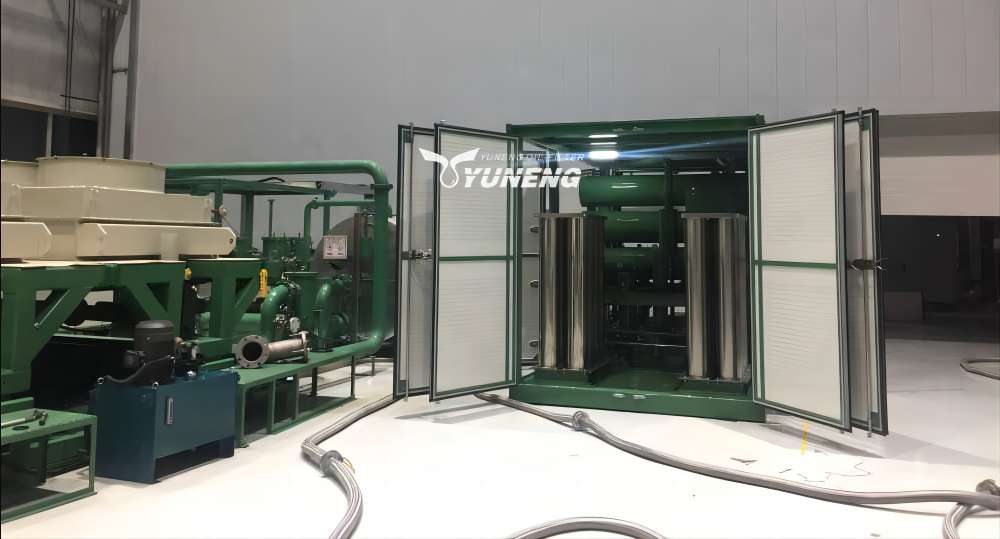
The YUNENG Transformer Oil Reclamation Plant offers a state-of-the-art solution for transformer oil purification and regeneration. Designed with advanced filtration and regeneration technologies, the YUNENG plant effectively removes moisture, gases, particulate matter, and oxidation by-products from transformer oil.
Key features include:
- Reactivated Regeneration Filters: These filters efficiently remove impurities and contaminants from the oil and can be regenerated for prolonged use, offering a cost-effective purification solution.
- High Efficiency: The plant is engineered to ensure thorough purification, restoring the oil’s dielectric strength and insulating properties to meet stringent quality standards.
- Versatility: Suitable for various types of transformer oils, including mineral oil, silicone oil, and synthetic ester oil, and adaptable to transformers of different sizes and capacities.
- Advanced Technology: Incorporates precision filtration, degassing, and dehydration processes to achieve superior purification results.
By using YUNENG’s Transformer Oil Reclamation Plant, industries can significantly extend the lifespan of their transformers, improve operational reliability, and reduce maintenance costs. The plant’s advanced features and efficient performance make it a preferred choice for high-quality oil purification solutions.
In conclusion, while both oil reclamation and replacement are viable methods for maintaining transformer oil quality, reclamation stands out as a cost-effective, environmentally friendly, and efficient approach. YUNENG’s advanced reclamation technology provides an optimal solution for prolonging transformer life and enhancing performance.
If you have any interests, please feel free to contact YUNENG.

